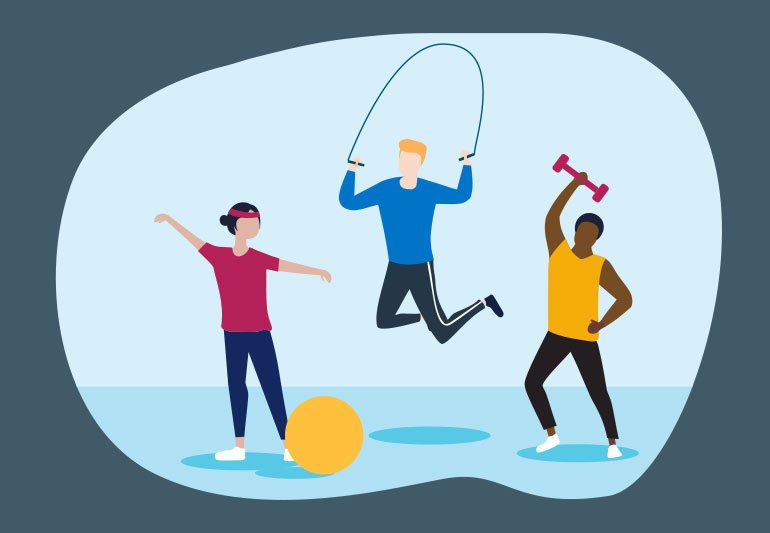Diabetes- Detect
Pre-Diabetic : This group of people are not yet diabetics , lifestyle modification, exercise and diet modifications will help them to prevent diabetes
Diabetic : Once they enter into this criteria they need medicine along with lifestyle modifications (diet and exercise) to avoid complications
and if they can modify their lifestyle, food and follow exercise plan, they might become normal or they can delay being diabetic and avoid its related complications.
COMPLICATIONS
1) Nephropathy which effects kidney function
2) Retinopathy - visual disturbance and blindness (sight lost with diabetic Retinopathy is Irreversible)
3) Neuropathy - Reduced sensation and tingling sensation of foot and skin, which delays wound healing and loss of sensitivity
Patients with diabetic Neuropathy are prone for injury and stress , which might lead to gangrene a life threatening condition or loss of limb .
Micro-Vascular and Macro- Vascular complications and many more complications to discuss further
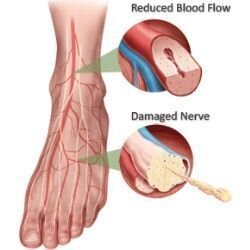
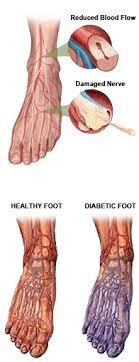
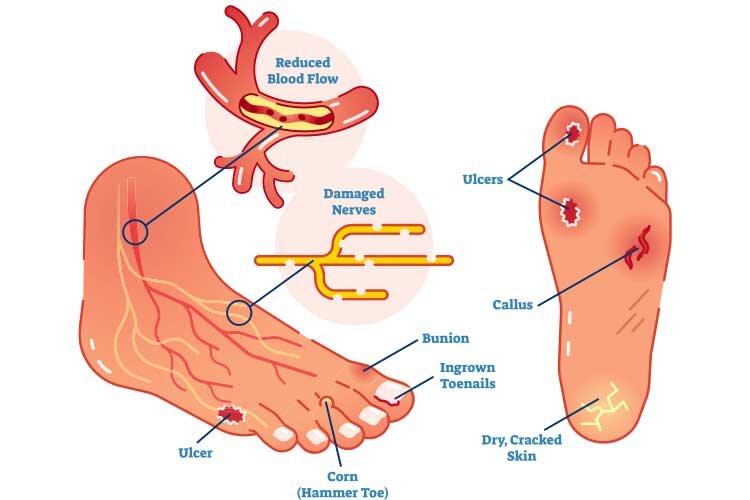
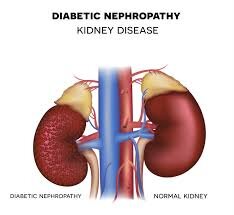
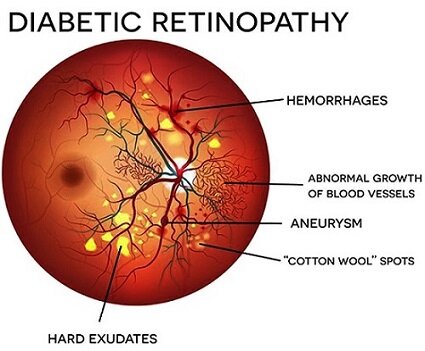
INSULIN
-

Insulin
Insulin is compulsory for TYPE 1 Diabetics
Used by TYPE 2 Diabetic who are not well controlled with oral medications.
most commonly used in hospitals and in pregnancy with least side effects (undesired effects )
Early initiation of Insulin may help to revert diabetes and its complications in young.
-

Insulin Syringe
Traditional insulins , available in 40 IU & 100 IU ( International units )
Diabetes is not a disease
Its a lifestyle Disorder which needs continuous care & support
we all need sugar to survive, but when the sugar is not entering into the cells and it stays in the blood the complications will start.
Many patients without understanding, unknowingly trying all sorts of tips / remedies to skip medications and ending with many complications.
Diabetes is the 2nd leading cause of Kidney Failure next to Hypertension,
Diabetes is also a cause Silent Heart Attacks.
1) What is Diabetes ?
Diabetes is a group of disorders which leads to high sugar in the blood
2) Do we need sugar ?
Yes we need sugar/ glucose to live and survive.. sugar levels below 60 can cause drowsiness and sweating . sugar levels below 30 can lead to brain death.
3) when do we call a person is diabetic ?
Fasting sugars less than 100 is considered normal
Fasting levels 101 - 125 is prediabetic range
Post Prandial sugars ( 2hrs after breakfast ) less than 140 is normal
Post prandial 141- 199 is call pre diabetic range
HBA1C below 5.5 is normal
HBA1C 5.6-6.4 is called pre diabetic range
If the sugar levels are above these range then we can consider the person as diabetic
4) why there is more sugar in the blood ?
We all need sugar to live and for all the metabolic activities for brain, muscles, and all organs for normal functioning.
When the sugar is unable to enter into the cell and left out in the blood then our sugar levels in the blood will start increasing.
5) Why sugars are not entering into cells ?
Insulin is required for transport ofsugars into the cells
eg. Every cell has a door and every door has a key , ( key is insulin )
When there is insulin in our body , we can try with oral tables
If there is no insulin secretion in our body we have to take insulin to survive
6) What is type 1 diabetes ?
It is called insulin dependent diabetes as there is absolute insulin deficiency and a person need to take insulin to survive. It occurs and identified in the children or young adults
7) What is type 2 diabetes ?
This group of people will have some insulin in the body but it might be not sufficient or there might be some resistance which is not allowing the insulin to work. This group of people can be managed with oral medications initially, but after certain period due to long standing , uncontrolled sugars,age, infections , pregnancy the reserve insulin may be exhausted , then they have to be on insulin for the lifetime if they don’t have any internal insulin.
DIABETES- understanding simplifed
Dr. Surya Jagadish Kumar, Consultant Physician & Diabetologist,
KIMS Hopspital- Secunderabad
Former Asst Professor: Kamineni Hospital Authorised Medical Officer NRSC ( ISRO )
Founder and President : Academy of Clinicians
Authorised Medical Officer : Malaysia
SURYA SPECIALITY CLINICS: Vanasthalipuram
TYPES OF INSULIN
Freequently Asked Questions:
Patient 1: 32 yr / F no past medical history;
Doctor, i am not using any medicine, recently post covid my routine health reports shows HBA1C 6.5 % , i have gained weight around 8 kgs in 5 months, i am not having any symptoms of diabetes ,like freequent urination , no weight loss, no numbness , AM I DIABETIC ? DO I HAVE TO USE MEDICINE ?
REPLY: hi, Post covid we are seeing a rise in sugar levels and many new young diabetics. New Diabetics may not have all the classical symptoms as mentioned, for some patients symptoms will present lately.
As you told weight gain could be one of the reason for diabetes ( Insulin Resistance )
Change in lifestyle, diet, exercise & weight loss might help you to revert back along with that keep in followup with your doctor.
If the HBA1C is not coming to normal levels inspite all the efforts ,medicine might be needed, and for some patients with other complications medicne might be advised by the doctor based on clinical judgement.
Patient 2: 65/ M diabetic since 15 years , weight loss, generalised weakness, Alcohol consumption in moderate + , dyslipidemia, HBA1C 11.5 % , using diabetic medicines of max dose still not controlled.
Query by the patient : One doctor told me to take insulin but i am not ready , my neighbours and few people told that if i take insulin i have to take it forever, they even told i will get used to it, so i dont want to take it & want to control my body without insulin, please suggest..
REPLY:
Dear sir, we cant live without insulin , insulin helps for the entry of food into our cells, if not all our cells will shrink ( weightloss ) and lead to cell damage ( neuropathy, nephropathy,
if we observe, blood taken from the vein is used to do all the investigations like …kidney, liver, thyroid, cholestrol, heart etc. with the same blood we check sugar levels, if sugar level is raised in the blood means all the cells are not getting food , leads to cell damage.
weight loss , high hba1c, high lipids, uncontrolled sugars even after using medicine is an indication to start insulin . tablets won’t work if we dont have insulin production in the body
please don’t follow others advise, who dont know about diabetes nor insulin, it is your health, please choose the right medicine.
Patient 3: 27/ Female, pregnant 16weeks
I am diabetic , please suggest good medicine suitable to me and for my baby .
REPLY:
Best medicine for diabetes in pregnancy is INSULIN
Tablets ( oral medicine ) will work only with insulin,
we have different tablets to 1) reduce insulin resistance, to 2) increase insulin secretion , or to 3) eliminate excess sugars etc…. , but all these tablets will work only if pancrease is producing insulin.
In pregnancy , if the mother dont take insulin , baby’s pancrease will be stimulated to produce insulin which is not good, baby will become very big ( Big Baby syndrome ) and many more complications, possibility of child becoming diabetic is high.
Please take insulin as suggested by your doctor, insulin is the only drug approved in pregnancy.
Metformin is considered in PCOD, and any other medicines will be considered by your doctor depending on your complications.
Diabetes Mellitus is a metabolic disorder of multiple etiologies. it is characterised by chronic hyperglycemia together with disturbances of carbohydrate, fat and protein metabolism resulting from defects of insulin secretion, insulin action or both.
The clinical presentation of diabetes is with thirst ,polyuria, blurring of vision and weight loss. This leads to ketoacidosis or hyperosmolar non-ketotic coma.
Often symptoms are mild or absent and mild hyperglycemia can persist for years with tissue damage developing, although the person may be totally asymptomatic.



